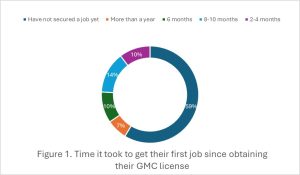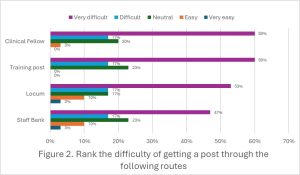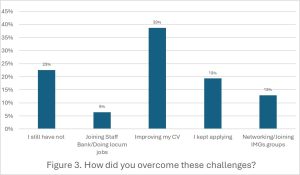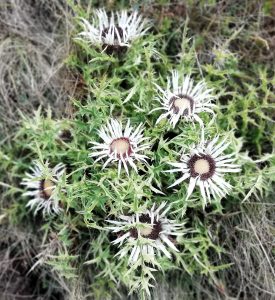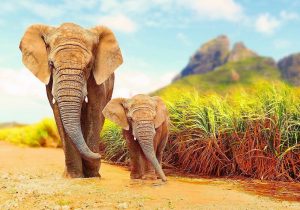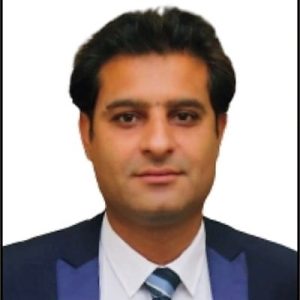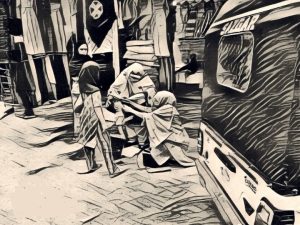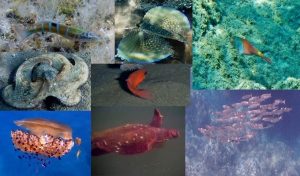IN A NUTSHELL
Author's Note
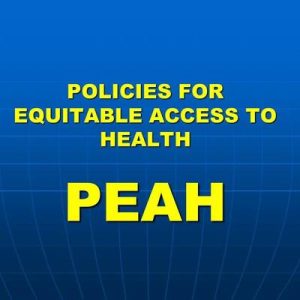 To encourage deeper reflection and action while challenging the prevailing Western-centric perspectives on development, well-being, and progress, we have developed the Sustainable Health Equity Index. This index integrates the Western emphasis on individual freedom and well-being (measured by life expectancy at birth) with the Eastern focus on the collective good. It prioritizes limiting harm to others by addressing issues such as excessive accumulation—depriving others of sufficient resources—and minimizing carbon footprints, which jeopardize the lives of future generations. The index aims to create conditions for achieving the highest feasible levels of health while balancing individual and collective responsibilities
To encourage deeper reflection and action while challenging the prevailing Western-centric perspectives on development, well-being, and progress, we have developed the Sustainable Health Equity Index. This index integrates the Western emphasis on individual freedom and well-being (measured by life expectancy at birth) with the Eastern focus on the collective good. It prioritizes limiting harm to others by addressing issues such as excessive accumulation—depriving others of sufficient resources—and minimizing carbon footprints, which jeopardize the lives of future generations. The index aims to create conditions for achieving the highest feasible levels of health while balancing individual and collective responsibilities
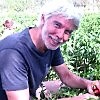
By Juan Garay
Professor of global health equity in Spain (ENS), Mexico (UNACH) and Cuba (ELAM, UCLV and UNAH), principal researcher of FioCruz Institute, Brazil
The Sustainable Wellbeing Equity Index
An Ethical Reference to Wellbeing while Respecting Other Lives
Speed is irrelevant if you are going in the wrong direction
Mahatma Gandhi
Scene setting
Some 10,000 years ago, humanity has transitioned to settled agriculture, cultivating the land, harvesting crops, and storing food for winter. This shift enabled the conquest of Earth’s surface, the rise of cities, and the establishment of hierarchical structures rooted in the power around beliefs, knowledge, laws, and resources. Artificial boundaries were drawn on the land, dividing and fostering competition among groups of people. These 10,000 years are marked by a history of wars, competition, environmental degradation, and increasing inequality. Yet, they are also a testament to progress—expanding the boundaries of knowledge about the macro- and microcosmos, the particles and quantum mechanics of matter, the genomes that encode life, and the rapid, far-reaching dissemination of information. However, the ongoing destruction of nature and the persistence of extreme inequalities continue to threaten human life, the existence of other species, and the well-being of future generations.
From the so-called “West”—encompassing social norms, ethical values, traditional customs, belief systems (rooted in monotheism), political systems, artifacts, and technologies primarily shaped by European and Mediterranean histories—we inherit values such as individual freedom including property and capital, democracy based on majority rule, and a reliance on rationalism and logic as foundations for understanding human life. While the West has made significant contributions to human knowledge, it has also imposed religions and empires, driven large-scale fossil fuel consumption, and developed nuclear risks and weapons, resulting in greater environmental destruction than any other culture.
The intensity of wars among Western nations, coupled with their expansion through oceanic exploration and the extension of empires, religions, and trade, reached its peak during the world wars—aptly referred to by others as “European wars”—in the first half of the 20th century. The devastation was so immense that it led to the establishment of a new world order aimed at fostering peace among nations and upholding universal human rights. However, these foundations were inherently fragile, as the history of nations continued to be rooted in competition, greed, and conflict. Moreover, the commitment to human rights was never enforceable and largely remained rhetorical. The structure created to uphold these principles, the United Nations, was biased from its inception, granting disproportionate power to five nations through the veto mechanism, leaving the remaining 193 subject to decisions shaped by an oligarchic framework.
The concept of development and human well-being has been heavily influenced by Western countries, notably Europe and the United States, and their free-market principles. Success is primarily measured by the intensity of market activity (reflected in transaction volumes and gross domestic product, driven by competition), the level of education (often defined by adherence to institutional norms and concepts, frequently geared towards competitiveness), and life expectancy (extended through improved living conditions and access to healthcare, though often at the cost of extreme inequalities). Consequently, the OECD development comprises the wealthiest nations in GDP terms, and the Human Development Index (HDI) is based on years of institutional education, life expectancy, and, most influential in the final rank, GDP per capita.
As humanity entered the 20th century, indisputable evidence emerged about the trends and risks of human-induced global warming and its potential to threaten the very existence of human life on the planet, along with countless other forms of life. The primary driver of this destructive, self-destructive, and “ecocidal” trajectory was greenhouse, notably carbon, emissions resulting from the burning of fossil fuels, which were strongly linked to economic activity (measured by GDP per capita). At the same time, extreme disparities in GDP per capita were closely tied to significant inequalities in life expectancy, highlighting a stark connection between economic inequality and human well-being.
Both extreme inequalities and environmental destruction were central concerns in the “Sustainable Development Goals” outlined in the 2030 Agenda. However, among the 17 goals and 169 targets, only two specifically address the challenges of reducing inequalities and carbon emissions. Unfortunately, they lack clear, objective benchmarks to guide efforts and measure progress toward achieving sustainable equity.
In the last articles we have alerted the need of change towards the WiSe (wellbeing in sustainable equity) paradigm[i] and restore a critically broken human deal[ii], questioned the shape and trend of international cooperation[iii], updated the ethical threshold on carbon emissions[iv], the identification of countries that preserve nature[v] and those that are sustainable equity references[vi], the estimates[vii] and distribution of the burden of international inequity[viii], the setting of dignity, excess and hoarding thresholds[ix] and the redistribution dynamics towards a Humanity living in sustainable equity[x]. Based on those concepts and metrics, and the 2024 demographic estimates published by the UN Population division[xi], we are updating last year´s atlas on global health equity[xii], which shows signs of decreasing references of wellbeing in sustainable equity and increasing intra and intergenerational inequities between and within countries. In the context of exponential capacities of access and analysis to data through artificial intelligence (AI) being applied to all human life dimensions, it does seem that technology continues to focus on profits and benefit disproportionately just a few. At present, AI mainly prioritizes financial speculation and accumulation of fewer and fewer concentrating economic and media, intertwined with political and military powers, beyond the hoarding threshold which does not improve wellbeing or knowledge directed to global public goods while it undermines others´ lives in this and coming generations. Probably a wise advice from some alien observing humanity could be (paraphrasing what Mahatma Gandhi once said): “speed is not only irrelevant, but slowly suicidal, if you are going in the wrong direction”.
To encourage deeper reflection and action while challenging the prevailing Western-centric perspectives on development, well-being, and progress, we have developed the Sustainable Health Equity Index. This index integrates the Western emphasis on individual freedom and well-being (measured by life expectancy at birth) with the Eastern focus on the collective good. It prioritizes limiting harm to others by addressing issues such as excessive accumulation—depriving others of sufficient resources—and minimizing carbon footprints, which jeopardize the lives of future generations. The index aims to create conditions for achieving the highest feasible levels of health while balancing individual and collective responsibilities.
The negative impact of GDP pc, related to income and wealth, above the excess threshold
As we have analyzed recentlyix, there is a threshold of GDP and income pcy, above which, life expectancy (as the best proxy for human wellbeing) does not improve any further. We have identified such level by subnational analysis in the country of higher life expectancy in the last 40 years, Japan, where we found that the Nara prefecture has the lowest GDP pc in the country ($ 21,838 pcy) yet one of the highest life expectancies at birth (84.31). The GDP in excess of such threshold accounts to over 40% of the world´s GDP, which is not only “wasted” as useless for human wellbeing, but it is also toxic given its relation to unfair inequalities and to nature´s destruction. We estimate the toxic effect of GDP pc above the excess threshold on the burden of health inequity in the following way:
- Life years lost in countries living with GDP pc below the dignity threshold (deficit zone) – BhiEdeficit-: 492,557,429 yearsvii
- GDP pc above excess threshold –exc GDP pc-: (GDP pc – 21,838).
- Deficit GDP gap (GDP required to meet at least the dignity threshold) -GDP gapdefiici t– : $ 7,563,073,006,854 ix
- Proportion of GDP above the excess threshold which would meet the GDP deficit -% excxgap-: 044 % x.
- Life years lost per life time above the excess threshold, in 2023:
BhiEdeficit x (exc GDP pc /GDP gapdefiici) x % excxgap x Life expectancy =
(GDP pc -21,838) x 0.0000371 x Life expectancy
Annex 1 displays the negative impact in life years lost due to global health inequity in deficit countries (with GDP pc < dignity threshold) by, in average, each citizen living in countries with GDP pc above the excess threshold, during his or her (average) lifetime.
The negative impact of CO2 emissions, related to other dimensions of our ecological footprint, above the ethical threshold
Recent analysis based on new UN demographic estimates for the remains of the XXIst century has revealed a threshold level of CO2 emissions per person and year. To keep global warming under 2 degrees Celsius during this century, the maximum annual average carbon dioxide emissions per person should be 1,3 tons, and to limit it to 1.5 (most likely unavoidable), just 0,3 tons. If the present uptrend in world per capita CO2 emissions were maintained global warming would exceed 8 degrees and result in 218 million excess deaths and a loss of approximately 6,500 million life years[xiii].
The relation between excess emissions and the consequence of life years lost (6.5Bn) results in some 1,46 days lost for every excess ton of carbon dioxide emitted annually, mainly to those living in low-CO2 emission countries iv.
To quantify the adverse impact of CO2 emissions surpassing this ethical threshold, we propose the following approach:
- CO2 emissions pcy > 2º ethical threshold –exc CO2 em pcy-: (CO2 em pcy – 1.31iv).
- Life years lost in the rest of the century at current trend of CO2 emissions (mostly in deficit/low CO2 emitting countries) – BhiECO2>2º-: 4,064,590,919 yearsvii
- Global CO2 excess emissions at current trend: – CO2 em excess-: 1,615 Tn tonnes.
- Life years lost per life time by CO2 emissions above the ethical threshold, in 2023:
exc CO2 em pcy x (BhiECO2>2º/ Gl. CO2 em excess) x Life expectancy =
(CO2 em pcy-1.31) x 0.000002517 x Life expectancy
Annex 1 displays the negative impact in life years lost due to excess CO2 emissions by, in average, each citizen living in countries with CO2 emissions pc above the excess threshold, during his or her (average) lifetime.
Geographical distributions of the three components of the Sustainable Wellbeing Equity Index
Life expectancy at birth
The following map shows the estimates of national average life expectancy at birth, based on the recent estimates of the UN Population Reportxi
Figure 1 : National average life expectancy at birth 2023
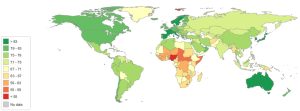
The map above illustrates that countries with the highest life expectancy at birth—over 83 years—include Japan (the highest, at 84.7 years), South Korea, southwestern Europe (Spain, France, Italy, and Switzerland), parts of Scandinavia (Sweden and Norway), and Australia. Conversely, countries with the lowest life expectancy at birth, below 60 years as of 2023, are Nigeria (the lowest, at 54.5 years), Chad, Lesotho, the Central African Republic, South Sudan, and Somalia, all located in sub-Saharan Africa.
Life years lost in deficit countries due to GDP pc above the excess threshold
As detailed in recent articles, there is a level of GDP per capita beyond which improvements in life expectancy and human well-being plateau, while carbon and ecological footprints become unsustainable. This excess or ‘toxic’ GDP could help bridge the income gap that keeps deficit countries below the dignity threshold, contributing to nearly 500 million life years lost. As discussed earlier, we can estimate the life years lost per capita over a lifetime in countries with GDP/income exceeding this excess threshold. For every $1,000 of GDP per capita above the excess threshold ($21,838) and over an average lifetime of 80 years (typical in high-income countries), three life years are lost in deficit countries. The map below illustrates this negative impact on individuals living in deficit countries within our generation:
Figure 2 : National average life years lost per lifetime (in deficit countries) due to excess GDP pc
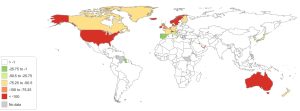
The map above highlights the countries that deplete life years in deficit countries due to excess GDP per capita. These countries include those in North America, Western Europe, Japan, South Korea, Australia, New Zealand, several Arab Emirates, and Guyana. Notably, countries with a negative impact exceeding 100 life years on others over a lifetime include Norway, Switzerland, Luxembourg, Sweden, Australia, Ireland, and the United States.
Life years lost due to CO2 emissions above the ethical threshold
As recently analyzed, the ethical threshold for per capita yearly CO2 emissions, beyond which global warming is expected to exceed 2ºC above preindustrial levels—triggering negative feedback loops across all planetary boundaries—is currently 1.31 metric tons per person per year. Emissions surpassing this threshold will drive the impacts of global warming, resulting in an estimated loss of over 400 billion human life years due to premature mortality and excess deaths by the end of this century, predominantly affecting low CO2-emitting and economically deficit countriesiv.
Similar to excess GDP per capita, we can estimate life years lost per capita and over a lifetime in countries with CO2 emissions exceeding this ethical threshold. For every metric ton of CO2 emitted above the threshold (1.31) over an average lifetime of 80 years (typical in high-income countries), approximately 2 hours of life are lost—primarily in low-emitting, GDP-deficit countries. However, this is a significant underestimate, as CO2 emissions persist in the atmosphere for 300–1,000 years, extending their impact across multiple generations, potentially beyond the 21st century if humanity endures.
The map below illustrates this negative impact on others, particularly those living in low-emitting, economically deficit countries, over the coming generations within the 21st century.
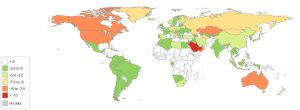
Figure 3 :Life years lost per person and lifetime due to CO2 emissions > ethical threshold
As shown on the map above, the countries with the highest per capita negative impact through excess CO2 emissions over a lifetime are located on the Arabian Peninsula—led by Qatar, which contributes to the loss of 25 life years per person in future generations, primarily due to its oil-export-based economy. These are followed by Kazakhstan, the United States, Canada, and Australia, each responsible for nearly 10 life years lost.
Russia and Mongolia follow with an impact of 5–7.5 life years, along with most of Western Europe, China, and the rest of the Middle East. Slightly lower negative impacts are observed across the Americas, Northern Africa, India, Southeast Asia, and Eastern Europe. France, due to its reliance on nuclear energy (which has other impacts outside the scope of this analysis), exhibits a comparatively lower effect.
The sustainable Wellbeing Equity Index
By combining the above three factors, the following map illustrates the Sustainable Wellbeing Index, which combines the average probability of enjoying life years deducting our negative effect on others through excess GDP/income pc and excess CO2 emissions.
Figure 4 : Sustainable Wellbeing Equity Index 2023
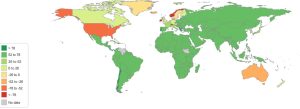
As shown on the map—and detailed in the table in Annex 3—the countries with the highest Sustainable Wellbeing Equity (SWE) Index (indicated in dark green) are Costa Rica and Taiwan, both exceeding 80 years. They are followed by Maldives, Albania, Chile, and Portugal.
The majority of the global population resides in countries with a SWE index ranging between 52 and 78 years. In contrast, countries with the highest negative impact due to excess GDP per capita and income—key factors influencing the SWE index—such as Norway, Switzerland, Luxembourg, Ireland, the United States, and Australia, exhibit a “negative SWE index.” This means that each lifetime in these countries effectively cancels out at least one life in deficit and low-emission countries.
SWE vs HDI index
The comparison of the ranking of countries by the UN Human Development index with the one by the Sustainable Wellbeing Equity Index hereby presented are very telling:
Table 1 SWE index and ranking of top countries by the UN Human Development Index, 2023
|
HDI rank |
SWE rank |
SWE life years |
| Switzerland |
1 |
192 |
-130.4 |
| Norway |
2 |
190 |
-97.9 |
| Iceland |
3 |
184 |
-35.5 |
| Hong Kong SAR, China |
4 |
172 |
14.5 |
| Denmark |
5 |
185 |
-39.9 |
| Sweden |
5 |
182 |
-22.6 |
| Germany |
7 |
173 |
13.1 |
| Ireland |
7 |
193 |
-136.3 |
| Singapore |
9 |
189 |
-57.4 |
| Australia |
10 |
186 |
-49.2 |
| Netherlands |
10 |
179 |
-8.2 |
| Belgium |
12 |
174 |
9.1 |
| Finland |
12 |
176 |
4.9 |
| United Kingdom |
15 |
178 |
2.9 |
| New Zealand |
16 |
170 |
18.0 |
| United Arab Emirates |
17 |
181 |
-11.8 |
| Canada |
18 |
177 |
4.1 |
| Korea, Rep. |
19 |
165 |
38.3 |
| Luxembourg |
20 |
194 |
-182.2 |
| United States |
20 |
188 |
-57.3 |
As the table above shows, the 20 countries ranked highest by the Human Development Index (where the most influential factor is GDP pc, with no limit above the excess of hoarding thresholds) have very low SWE rankings and most of them have a net negative effect on human life, that is, their negative impact on others through excess accumulation of income or excess carbon emissions is higher than their life expectancy at birth.
Conversely, as the table below shows, the countries with highest SWE index are ranked mostly in the lower third of the HDI ranking, with Costa Rica´s highest SWE ranking considered only 64th in the HDI ranking.
|
HDI rank |
SWE rank |
| Costa Rica |
64 |
1 |
| Maldives |
87 |
2 |
| Albania |
74 |
3 |
| Chile |
44 |
4 |
| Portugal |
42 |
5 |
| Greece |
33 |
6 |
| Panama |
57 |
7 |
| Cuba |
85 |
8 |
| Uruguay |
52 |
9 |
| Sri Lanka |
78 |
10 |
| Peru |
87 |
11 |
| Jordan |
99 |
12 |
| Colombia |
91 |
13 |
| Ecuador |
83 |
14 |
| Croatia |
39 |
15 |
| Cabo Verde |
131 |
16 |
| North Macedonia |
83 |
17 |
| Lebanon |
109 |
18 |
| Montenegro |
50 |
19 |
| Tunisia |
101 |
20 |
| Argentina |
48 |
21 |
Conclusions
We combine the three elements detailed above to estimate the Sustainable Wellbeing Equity (SWE) Index. This index challenges the dominant Western principle of prioritizing individual human life by incorporating the broader impact each human life has on others.
The results challenge the UN Human development Index which gives the highest weighing factor to the GDP pc with those countries with levels above the excess and hoarding threshold ranking highest, while their SWE index is very low and often negative, that is, their negative effect on others cancels out their life expectancy at birth.
Future refinements of the negative effects assessed should include the negative impact of countries benefiting from their tax havens, the carbon border evaluations—considering how imports of raw materials and manufactured goods contribute to CO2 emissions shared with exporting countries—and the role of oil-producing nations, whose exports fuel emissions in importing countries.
This study is beyond the scope and capacity to estimate additional negative impacts, such as the effects of arms production and trade on war victims, the consequences of migration laws on deaths along migration routes, and even broader considerations of how human activity impacts other forms of life, moving beyond an anthropocentric perspective.
Looking forward, we should also develop ways to measure the positive impacts our lives have on others—such as contributions to global public goods, acts of care and solidarity, and efforts to protect and preserve nature—fostering a more balanced and holistic assessment of human influence.
Annex 1: Life years lost in deficit countries by excess GDP pc, per person and life time
| Excess countries |
Life years lost in deficit countries, per person and lifetime |
Excess countries |
Life years lost in deficit countries, per person and lifetime |
| Bermuda |
-263.64 |
Hong Kong SAR, China |
-68.97 |
| Luxembourg |
-257.10 |
Belgium |
-68.47 |
| Isle of Man |
-227.16 |
Israel |
-63.79 |
| Ireland |
-214.15 |
Germany |
-63.61 |
| Switzerland |
-212.41 |
New Zealand |
-60.65 |
| Cayman Islands |
-179.17 |
Andorra |
-57.21 |
| Norway |
-176.73 |
France |
-53.05 |
| Singapore |
-135.59 |
Japan |
-47.97 |
| United States |
-127.22 |
Virgin Islands (U.S.) |
-40.17 |
| Australia |
-123.16 |
Korea, Rep. |
-38.48 |
| Denmark |
-119.30 |
Italy |
-37.12 |
| Iceland |
-112.30 |
Malta |
-28.94 |
| Macao SAR, China |
-111.40 |
Cyprus |
-27.09 |
| Qatar |
-106.41 |
Puerto Rico |
-25.14 |
| Sweden |
-104.19 |
Bahamas, The |
-22.78 |
| Netherlands |
-86.26 |
Brunei Darussalam |
-20.41 |
| United Arab Emirates |
-77.12 |
Spain |
-19.30 |
| United Kingdom |
-76.01 |
Kuwait |
-15.62 |
| Greenland |
-73.43 |
Slovenia |
-11.54 |
| Finland |
-73.34 |
Bahrain |
-8.75 |
| Austria |
-73.12 |
Guyana |
-3.88 |
| Canada |
-69.22 |
Portugal |
-1.65 |
Annex 2: Life years lost (mostly in deficit countries) during the remains of the XXIst century, by excess CO2 emissions, per person and life time
| Excess CO2 emission countries |
Life years lost in deficit countries, per person and lifetime |
Excess CO2 emission countries |
Life years lost in deficit countries, per person and lifetime |
| Qatar |
-25.93 |
Croatia |
-2.05 |
| United Arab Emirates |
-17.63 |
Lebanon |
-2.03 |
| Bahrain |
-17.17 |
Hong Kong SAR, China |
-2.03 |
| Kuwait |
-16.92 |
Barbados |
-2.01 |
| Brunei Darussalam |
-14.79 |
Switzerland |
-1.97 |
| Trinidad and Tobago |
-13.45 |
Argentina |
-1.94 |
| Saudi Arabia |
-11.52 |
Portugal |
-1.94 |
| Oman |
-10.00 |
Guyana |
-1.85 |
| Australia |
-9.94 |
Liechtenstein |
-1.79 |
| United States |
-9.37 |
Mexico |
-1.74 |
| Canada |
-9.26 |
Algeria |
-1.71 |
| Kazakhstan |
-8.16 |
Iraq |
-1.68 |
| Korea, Rep. |
-7.51 |
Sweden |
-1.64 |
| Luxembourg |
-7.34 |
Thailand |
-1.61 |
| Palau |
-6.48 |
Romania |
-1.58 |
| Russian Federation |
-6.40 |
Montenegro |
-1.55 |
| Mongolia |
-6.11 |
North Macedonia |
-1.53 |
| Turkmenistan |
-5.90 |
Nauru |
-1.52 |
| Iceland |
-5.86 |
Azerbaijan |
-1.51 |
| Greenland |
-5.55 |
Latvia |
-1.47 |
| Czech Republic |
-5.54 |
Ukraine |
-1.41 |
| Singapore |
-5.50 |
Vietnam |
-1.40 |
| Japan |
-5.26 |
Uzbekistan |
-1.34 |
| Malaysia |
-4.81 |
Maldives |
-1.34 |
| Libya |
-4.76 |
Marshall Islands |
-1.33 |
| Germany |
-4.69 |
Malta |
-1.27 |
| Poland |
-4.62 |
Mauritius |
-1.25 |
| Ireland |
-4.56 |
Georgia |
-1.05 |
| Belgium |
-4.52 |
Lao PDR |
-1.04 |
| Aruba |
-4.50 |
Tunisia |
-1.02 |
| China |
-4.50 |
Panama |
-0.94 |
| Norway |
-4.46 |
Equatorial Guinea |
-0.93 |
| Estonia |
-4.42 |
Botswana |
-0.90 |
| Iran, Islamic Rep. |
-4.35 |
Grenada |
-0.89 |
| Turks and Caicos Islands |
-4.26 |
Venezuela, RB |
-0.86 |
| Netherlands |
-4.13 |
Indonesia |
-0.80 |
| Bermuda |
-4.00 |
St. Lucia |
-0.80 |
| Austria |
-3.94 |
Uruguay |
-0.65 |
| Finland |
-3.69 |
Ecuador |
-0.65 |
| Bulgaria |
-3.59 |
Armenia |
-0.63 |
| Israel |
-3.48 |
Gabon |
-0.62 |
| New Zealand |
-3.47 |
Egypt, Arab Rep. |
-0.62 |
| Antigua and Barbuda |
-3.42 |
Brazil |
-0.59 |
| Slovenia |
-3.30 |
Jamaica |
-0.59 |
| Bosnia and Herzegovina |
-3.22 |
St. Vincent and the Grenadines |
-0.59 |
| Slovak Republic |
-3.20 |
Dominican Republic |
-0.49 |
| Italy |
-3.19 |
Dominica |
-0.47 |
| Greece |
-3.13 |
Jordan |
-0.46 |
| Serbia |
-3.12 |
India |
-0.41 |
| Belarus |
-3.12 |
Colombia |
-0.39 |
| South Africa |
-3.10 |
Korea, Dem. People’s Rep. |
-0.39 |
| Seychelles |
-3.04 |
Cuba |
-0.35 |
| Cyprus |
-3.03 |
Morocco |
-0.32 |
| Suriname |
-2.85 |
Peru |
-0.30 |
| Spain |
-2.78 |
Belize |
-0.28 |
| Denmark |
-2.56 |
Albania |
-0.28 |
| Turkey |
-2.52 |
Tonga |
-0.27 |
| Bahamas, The |
-2.48 |
Bolivia |
-0.25 |
| British Virgin Islands |
-2.46 |
Moldova |
-0.19 |
| Andorra |
-2.39 |
Costa Rica |
-0.13 |
| United Kingdom |
-2.38 |
Macao SAR, China |
-0.12 |
| France |
-2.36 |
Namibia |
-0.11 |
| Lithuania |
-2.15 |
Kyrgyz Republic |
-0.05 |
| St. Kitts and Nevis |
-2.11 |
Lesotho |
-0.01 |
| Chile |
-2.09 |
Bhutan |
0.00 |
| Hungary |
-2.08 |
|
|
Annex 3: Sustainable Wellbeing Equity Index by national averages
| Country |
Sustainable wellbeing equity index |
Country |
Sustainable wellbeing equity index |
| Costa Rica |
80.67 |
Pakistan |
67.65 |
| Maldives |
79.70 |
Malawi |
67.35 |
| Albania |
79.33 |
Fiji |
67.32 |
| Chile |
79.08 |
Ethiopia |
67.32 |
| Portugal |
78.77 |
Namibia |
67.27 |
| Greece |
78.73 |
Saudi Arabia |
67.21 |
| Panama |
78.66 |
Micronesia, Fed. Sts. |
67.20 |
| Cuba |
77.73 |
Tuvalu |
67.10 |
| Uruguay |
77.49 |
Tanzania |
67.00 |
| Sri Lanka |
77.48 |
Myanmar |
66.89 |
| Peru |
77.44 |
Comoros |
66.78 |
| Jordan |
77.35 |
Slovenia |
66.77 |
| Colombia |
77.33 |
Russian Federation |
66.76 |
| Ecuador |
76.74 |
Kiribati |
66.47 |
| Croatia |
76.53 |
Zambia |
66.35 |
| Cabo Verde |
76.06 |
Sudan |
66.33 |
| North Macedonia |
75.86 |
Kazakhstan |
66.24 |
| Lebanon |
75.78 |
Papua New Guinea |
66.13 |
| Montenegro |
75.54 |
Afghanistan |
66.03 |
| Tunisia |
75.49 |
Djibouti |
65.99 |
| Argentina |
75.45 |
Gambia, The |
65.86 |
| Brazil |
75.25 |
Congo, Rep. |
65.77 |
| Slovak Republic |
75.14 |
Mongolia |
65.63 |
| Armenia |
75.05 |
Marshall Islands |
65.61 |
| Morocco |
75.00 |
Ghana |
65.50 |
| Hungary |
74.95 |
West Bank and Gaza |
65.17 |
| Nicaragua |
74.95 |
Haiti |
64.94 |
| Thailand |
74.80 |
Angola |
64.62 |
| Estonia |
74.73 |
Libya |
64.58 |
| Latvia |
74.72 |
Guyana |
64.46 |
| Bangladesh |
74.67 |
Turkmenistan |
64.18 |
| Turkey |
74.64 |
Eswatini |
64.12 |
| Bosnia and Herzegovina |
74.63 |
Guinea-Bissau |
64.08 |
| Algeria |
74.55 |
Cameroon |
63.70 |
| Romania |
74.36 |
Burundi |
63.65 |
| Grenada |
74.31 |
Kenya |
63.65 |
| Czech Republic |
74.29 |
Madagascar |
63.63 |
| Antigua and Barbuda |
74.18 |
Mozambique |
63.61 |
| Barbados |
74.17 |
South Africa |
63.04 |
| Poland |
74.02 |
Zimbabwe |
62.77 |
| Lithuania |
73.87 |
Equatorial Guinea |
62.77 |
| Paraguay |
73.84 |
Togo |
62.74 |
| Turks and Caicos Islands |
73.75 |
Liberia |
62.16 |
| Mauritius |
73.67 |
Cote d’Ivoire |
61.94 |
| Serbia |
73.65 |
Congo, Dem. Rep. |
61.90 |
| China |
73.45 |
Sierra Leone |
61.79 |
| Georgia |
73.45 |
Spain |
61.60 |
| Mexico |
73.33 |
Niger |
61.18 |
| Iran, Islamic Rep. |
73.30 |
Burkina Faso |
61.09 |
| Belize |
73.28 |
Benin |
60.77 |
| Dominican Republic |
73.23 |
Guinea |
60.74 |
| Vietnam |
73.19 |
Nauru |
60.59 |
| Bhutan |
72.97 |
Mali |
60.44 |
| Azerbaijan |
72.92 |
Trinidad and Tobago |
60.04 |
| Honduras |
72.88 |
Somalia |
58.82 |
| Tonga |
72.63 |
Central African Republic |
57.41 |
| Guatemala |
72.60 |
Lesotho |
57.37 |
| Syrian Arab Republic |
72.12 |
Bahrain |
55.37 |
| El Salvador |
72.10 |
Chad |
55.07 |
| Bulgaria |
72.05 |
Nigeria |
54.46 |
| Ukraine |
72.01 |
Malta |
53.09 |
| St. Lucia |
71.89 |
Cyprus |
51.53 |
| Aruba |
71.85 |
Bahamas, The |
49.30 |
| Malaysia |
71.84 |
Kuwait |
47.86 |
| Tajikistan |
71.79 |
Italy |
43.41 |
| Samoa |
71.70 |
Brunei Darussalam |
40.13 |
| Kyrgyz Republic |
71.63 |
Korea, Rep. |
38.34 |
| India |
71.59 |
Virgin Islands (U.S.) |
35.31 |
| Vanuatu |
71.48 |
Japan |
31.48 |
| Belarus |
71.32 |
France |
27.92 |
| Uzbekistan |
71.04 |
Andorra |
24.44 |
| Egypt, Arab Rep. |
71.02 |
New Zealand |
17.97 |
| Moldova |
71.01 |
Israel |
15.14 |
| Jamaica |
70.89 |
Hong Kong SAR, China |
14.51 |
| Suriname |
70.78 |
Germany |
13.07 |
| Cambodia |
70.67 |
Belgium |
9.12 |
| Dominica |
70.66 |
Austria |
4.90 |
| St. Vincent and the Grenadines |
70.64 |
Finland |
4.88 |
| Iraq |
70.64 |
Canada |
4.15 |
| Solomon Islands |
70.53 |
United Kingdom |
2.90 |
| Nepal |
70.35 |
Netherlands |
-8.24 |
| Indonesia |
70.34 |
Greenland |
-8.93 |
| St. Kitts and Nevis |
70.04 |
United Arab Emirates |
-11.85 |
| Oman |
70.03 |
Sweden |
-22.57 |
| Philippines |
69.83 |
Macao SAR, China |
-28.44 |
| Seychelles |
69.82 |
Iceland |
-35.46 |
| Sao Tome and Principe |
69.72 |
Denmark |
-39.93 |
| Yemen, Rep. |
69.30 |
Australia |
-49.18 |
| Senegal |
68.68 |
Qatar |
-49.97 |
| Mauritania |
68.48 |
United States |
-57.29 |
| Bolivia |
68.33 |
Singapore |
-57.35 |
| Botswana |
68.27 |
Norway |
-97.88 |
| Uganda |
68.25 |
Cayman Islands |
-98.81 |
| Lao PDR |
67.92 |
Switzerland |
-130.43 |
| Rwanda |
67.79 |
Ireland |
-136.30 |
| Gabon |
67.72 |
Luxembourg |
-182.20 |
| Timor-Leste |
67.69 |
Bermuda |
-185.33 |
References
[i] https://www.peah.it/2023/12/12800/
[ii] https://www.peah.it/2024/04/13164/
[iii] https://www.peah.it/2023/03/a-renewed-iinternational-cooperation-partnerhip-framework-in-the-xxist-century/
[iv] https://www.peah.it/2024/07/13556/
[v] https://www.peah.it/2024/09/13667/
[vi] https://www.peah.it/2024/10/identifying-international-sustainable-health-models/
[vii] https://www.peah.it/2024/11/the-price-of-global-injustice-in-loss-of-human-life/
[viii] https://www.peah.it/2024/11/14003/
[ix] https://www.peah.it/2024/11/enough-is-enough-and-more-is-too-much-between-basic-dignity-and-excess-hoarding-thresholds/
[x] https://www.peah.it/2024/12/14117/
[xi] https://www.un.org/development/desa/pd/world-population-prospects-2024
[xii] https://www.interacademies.org/news/unveils-global-health-equity-atlas
[xiii] https://www.peah.it/2018/07/5498/
—
By the same Author on PEAH
Ethical Equity Redistribution/Contribution to Global Good
Enough is Enough, and More is Too Much: Between Basic Dignity and Excess/Hoarding Thresholds
Geography of Global Injustice: State of the Burden of Global Health Inequity in 2023
The Price of Global Injustice in Loss of Human Life
Identifying International Sustainable Health Models
Homo Interitans: Countries that Escape, So Far, the Human Bio-Suicidal Trend
Human Ethical Threshold of CO2 Emissions and Projected Life Lost by Excess Emissions
Restoring Broken Human Deal
Towards a WISE – Wellbeing in Sustainable Equity – New Paradigm for Humanity
A Renewed International Cooperation/Partnership Framework in the XXIst Century
COVID-19 IN THE CONTEXT OF GLOBAL HEALTH EQUITY
Global Health Inequity 1960-2020 Health and Climate Change: a Third World War with No Guns
Understanding, Measuring and Acting on Health Equity










